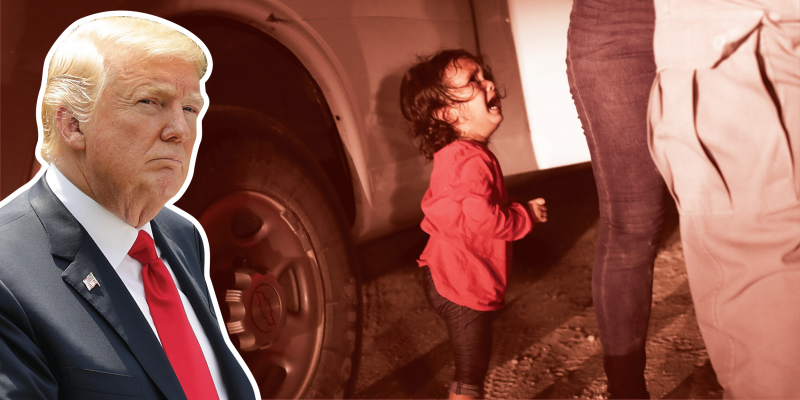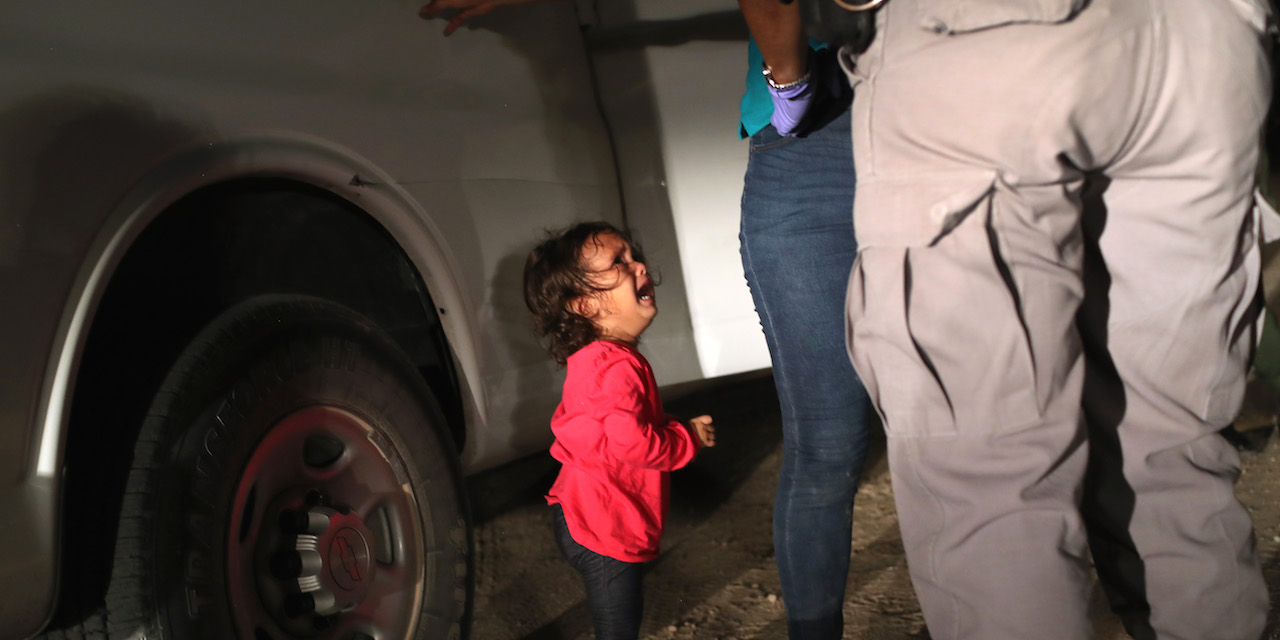- Getty photographer and Pulitzer Prize winner John Moore shared what it’s like to take pictures of detained immigrant families at the border.
- He has covered the US-Mexico border for a decade, and taken many iconic photos of the scene there over the years.
- The one he took of a Honduran girl crying as her mom was questioned at the border won the 2019 World Press Photo of the Year.
- “As a father myself, it was very difficult for me to see these families detained, knowing that they would soon be split up,” Moore said.
Getty photographer and Pulitzer Prize winner John Moore has taken some of the most iconic photos to emerge from the US-Mexico border, including one of an asylum-seeking young girl crying as Border Patrol agents questioned her mother.
That image won the 2019 World Press Photo of the Year, announced Thursday.
Moore shared what it’s like taking pictures of detained immigrant families at the border, many of whom were separated this summer as part of President Donald Trump’s “zero tolerance” immigration policy, to Getty’s blog Foto in June.
“As a father myself, it was very difficult for me to see these families detained, knowing that they would soon be split up,” he said at the time. “I could see on their faces that they had no idea what was about to happen.”
The girl and her mother were not separated from each other

After the photo was published in news outlets worldwide, US Customs and Border Protection said Yanela Sanchez and her mother Sandra Sanchez were not separated from each other.
Responding to the controversy around the photo, Moore told The New York Times that "The best we can do, often as wire service photojournalists, is to photograph honestly and caption correctly."
"Our photographs sometimes take on a life of their own later on," he told the paper. "As photojournalists, we can't always control that narrative."
On June 20, Trump signed an executive order ending his administration's practice of separating migrant families, and later that month, a federal judge ordered the Trump administration to reunite migrant children who were separated from their parents.
He was 'almost overcome with emotion' taking the photograph
Moore said he doubted many of the migrant families coming to the border last spring and summer knew about the Trump administration's policy that separated families.
"Most of these families were scared, to various degrees," Moore told Foto in June. "I doubt any of them had ever done anything like this before - flee their home countries with their children, traveling thousands of miles through dangerous conditions to seek political asylum in the United States, many arriving in the dead of night."
Border agents appeared to have a feeling of "resignation" about implementing and enforcing the family separations, according to Moore.
"Generally speaking, agents find the bureaucracy of processing so many asylum seekers tedious," Moore told Foto. "Once families cross the Rio Grande from Mexico into Texas, they seek out Border Patrol agents and then turn themselves in. I'd say that many agents do have some compassion for them, but they don't think that the US should be responsible for accepting them."
In the instance of the young girl crying as her mother was questioned by border patrol agents, Moore said she Yanela was two years old and from Honduras. The mother, Sandra, told him they had been traveling for a month to get to the US border and apply for asylum.
When Sandra set her daughter down so that she could be searched and the young girl began to cry, Moore admitted that he "was almost overcome with emotion myself."
Moore caught up with the Sanchezes in February, and learned that they were detained in three different facilities in Texas for 18 days, then released. Awaiting a court hearing outside Washington, D.C., Sandra can't get a job without a work permit, and she told Moore she hadn't been able to afford an immigration attorney to help with her case.
- Read more:
- Trump is booting out anyone who tells him his immigration ideas are illegal. Experts are worried about what will happen next.
- US-Mexico border apprehensions have skyrocketed to a 12-year high as officials warn of a 'breaking point'
- Closing the border would put the US economy at a 'standstill' and actually worsen illegal border crossings. Here's how it would affect food prices, jobs, and Americans' everyday lives.
- Sexual abuse and harassment reports in migrant children's shelters spiked during Trump's family separations










